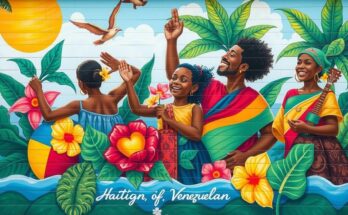Caricom ministers will meet with U.S. officials to discuss new visa restrictions affecting Cuban medical practitioners. The policy targets Cuban officials and those involved in the labor export program. Discussions will clarify the implications for regional healthcare partnerships.
A meeting between United States officials and Caribbean Community (Caricom) Foreign Affairs Ministers is scheduled for March. The discussion will center on President Donald Trump’s administration’s policy to limit visas for governmental officials from nations that employ Cuban medical practitioners. This visa restriction will also extend to the immediate family members of these officials, impacting many regional collaborations in healthcare.
On February 25, U.S. Secretary of State Marco Rubio declared the extension of this Cuba-related visa restriction, highlighting its focus on combating forced labor associated with the Cuban labor export program. Rubio emphasized that this policy targets Cuban government officials, as well as foreign government officials, who are linked to the overseas medical missions of Cuba.
According to Rubio, the Cuban government profits from what he described as an “abusive and coercive labor practice,” which undermines the medical care that Cuban citizens require within their own country. The announcement raises concerns regarding the employment of Cuban medical professionals in several nations, including Trinidad and Tobago.
In an effort to provide clarity on these developments, Caricom Foreign Affairs Minister Dr. Amery Browne revealed that the Council for Foreign and Community Relations (COFCOR) convened to draft a formal request for clarification from the U.S. State Department. A meeting is planned for the second week of March between COFCOR Ministers and U.S. envoy Mauricio Claver-Carone in Washington, D.C.
Diplomatic communication with the Cuban Ambassador to Trinidad and Tobago, Gustavo Veliz, was sought but received no immediate response. However, Veliz previously reassured that Cuba’s relationship with Trinidad and Tobago would persist across various sectors, including healthcare, in light of the Trump administration’s sanctions against Cuba.
In summary, the forthcoming meeting between Caricom Foreign Affairs Ministers and U.S. officials represents a pivotal moment in addressing the implications of the new visa restrictions concerning Cuban medical professionals. The ongoing discourse emphasizes the need for clarification on the policy’s impact on regional healthcare collaborations. Cuba’s commitment to its relationship with Trinidad and Tobago amid these changes remains a hopeful sign for continued cooperation in medical services.
Original Source: www.stabroeknews.com




